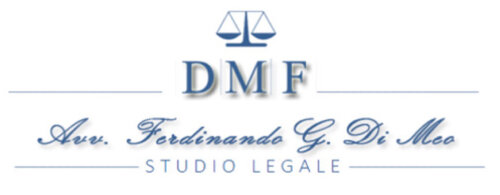Best Funds & Asset Management Lawyers in Avellino
Share your needs with us, get contacted by law firms.
Free. Takes 2 min.
List of the best lawyers in Avellino, Italy
About Funds & Asset Management Law in Avellino, Italy
Funds and asset management law in Avellino, Italy, covers the legal and regulatory framework that governs investment funds, asset management companies, portfolio managers, and institutional or private investors. As a city in the Campania region, Avellino follows Italian national legislation, as well as European Union regulations, when it comes to the oversight and operation of funds, trusts, investment vehicles, and financial services. The local legal market supports both institutional clients and private individuals seeking guidance on fund formation, compliance, regulatory issues, and dispute resolution.
Why You May Need a Lawyer
Legal assistance is crucial in funds and asset management due to the complex regulations, high-value transactions, and potential risks involved. Here are some common situations when people in Avellino might require a lawyer:
- Advising on the creation or structuring of investment funds
- Assisting with regulatory compliance and licensing with Italian authorities
- Drafting or reviewing investment management agreements
- Dispute resolution between managers and investors
- Advising institutional or private clients on asset allocation and risk management
- Handling cross-border transactions and tax structuring
- Navigating anti-money laundering (AML) and know your customer (KYC) regulations
- Guidance during fund liquidation or restructuring
- Legal due diligence in mergers, acquisitions, or sale of assets under management
Local Laws Overview
Funds and asset management activities in Avellino are governed primarily by national legislation and European Union directives, specifically:
- The Testo Unico della Finanza (TUF) - Italy's Consolidated Law on Finance, which sets out rules for financial markets, including asset management companies and collective investment schemes
- Decree-Law no. 58/1998 (the key regulatory framework for asset management and investment services in Italy)
- CONSOB regulations - the national authority responsible for the supervision of the securities market
- Bank of Italy's rules for prudential supervision and reporting requirements
- EU directives such as MiFID II, AIFMD, and UCITS IV, which have been transposed into Italian law
In Avellino, as in the rest of Italy, proper licensing is required for asset management companies (SGR), and investors must comply with KYC, AML, and transparency requirements. All investment products and services must be carried out in full respect of client interests, with proper disclosure and protection against conflicts of interest.
Frequently Asked Questions
What is a collective investment fund in Italy?
A collective investment fund pools capital from multiple investors to invest in a diversified portfolio of assets. In Italy, these can include open-ended funds (Fondi Comuni di Investimento) and closed-ended funds, and are managed by licensed asset management companies.
Who regulates funds and asset managers in Avellino?
Funds and asset managers in Avellino are principally regulated by CONSOB (the Italian Securities and Exchange Commission) and the Bank of Italy, in accordance with EU directives and Italian national legislation.
What licenses are required to manage assets professionally?
To manage assets professionally, a company must obtain authorization from the Bank of Italy and register with CONSOB as a Società di Gestione del Risparmio (SGR). Individual portfolio managers also require specific licensing.
What are the KYC and AML requirements?
All asset management firms must verify their clients’ identities, monitor transactions, and report suspicious activities to authorities to comply with anti-money laundering and know your customer regulations.
Can foreigners invest in funds managed in Avellino?
Yes, foreigners can invest in Italian funds, subject to certain regulatory obligations, identity verification, and transparency rules as set by Italian and EU law.
What is the role of fiduciary services in asset management?
Fiduciary services can be used for asset protection, estate planning, and investment management, allowing a designated party to manage assets in the best interest of the beneficiary, based on a legal or contractual obligation.
How are fees for asset managers structured?
Fees may include management fees, performance fees, and occasionally entry or exit charges. These must be clearly disclosed to investors in advance, as required by law.
What happens if there is a dispute between an investor and a fund manager?
Disputes can be resolved through negotiation, mediation, or litigation. Courts and alternative dispute resolution services are available in Avellino, and regulatory authorities may also assist.
Are there local tax implications for fund investors?
Yes, investment returns are generally subject to Italian taxation. Tax rules can be complex, especially for cross-border investors, so professional guidance is recommended.
What are the reporting obligations of asset managers?
Asset managers must provide regular, transparent reports to investors and regulators. This includes information on portfolio composition, risks, performance, and any material changes.
Additional Resources
Those seeking more information or assistance can contact or consult the following organizations:
- CONSOB (Commissione Nazionale per le Società e la Borsa) for regulatory guidance
- Bank of Italy (Banca d’Italia) for prudential supervision and licensing
- Chamber of Commerce of Avellino for information on local business requirements
- Italian Association of Asset Managers (Assogestioni) for industry resources
- Legal aid offices in Avellino for preliminary consultations
- Local bar association (Ordine degli Avvocati di Avellino) to find qualified lawyers specializing in funds and asset management
Next Steps
If you need legal assistance in funds and asset management in Avellino, it is advisable to start by identifying your specific needs, such as fund formation, compliance, or dispute resolution. Gather all documents and information relating to your investments or interests. Contact a qualified lawyer with experience in asset management law, preferably someone registered with the local bar association. A specialist can offer guidance on compliance, risk management, and legal strategies that best protect your interests. For complex matters, consider scheduling a formal consultation to receive personalized advice based on your particular situation.
Lawzana helps you find the best lawyers and law firms in Avellino through a curated and pre-screened list of qualified legal professionals. Our platform offers rankings and detailed profiles of attorneys and law firms, allowing you to compare based on practice areas, including Funds & Asset Management, experience, and client feedback.
Each profile includes a description of the firm's areas of practice, client reviews, team members and partners, year of establishment, spoken languages, office locations, contact information, social media presence, and any published articles or resources. Most firms on our platform speak English and are experienced in both local and international legal matters.
Get a quote from top-rated law firms in Avellino, Italy — quickly, securely, and without unnecessary hassle.
Disclaimer:
The information provided on this page is for general informational purposes only and does not constitute legal advice. While we strive to ensure the accuracy and relevance of the content, legal information may change over time, and interpretations of the law can vary. You should always consult with a qualified legal professional for advice specific to your situation.
We disclaim all liability for actions taken or not taken based on the content of this page. If you believe any information is incorrect or outdated, please contact us, and we will review and update it where appropriate.









